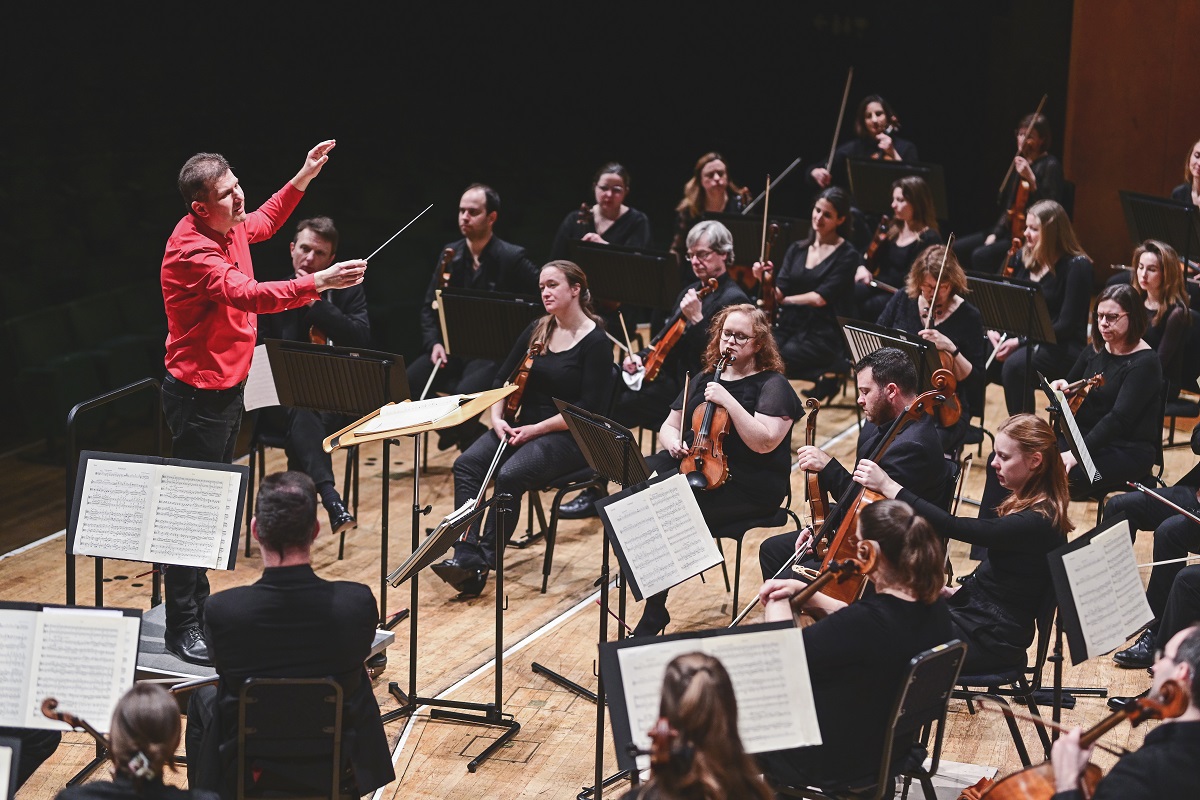Opera magazine editor-in-chief John Allison on hosting the Welsh with My Homeland
By John Allison, editor-in-chief, Opera magazine
The British love affair with Czech music, which can be traced right back to Antonín Dvořák’s appearances in Britain during the 1880s, shows no sign of cooling off. Yet it is something rarer for British-based musicians to bring Czech music to Czech cities, especially since the death of the great Charles Mackerras (and not to forget Christopher Hogwood), which makes the visit of the Welsh National Opera Orchestra to the prestigious opening of the Prague Spring Festival in May 2023 all the more newsworthy. It helps, of course, that WNO’s music director is the Czech conductor Tomáš Hanus, but their visit will still be only the fourth by a British orchestra in the festival’s 78-year history.
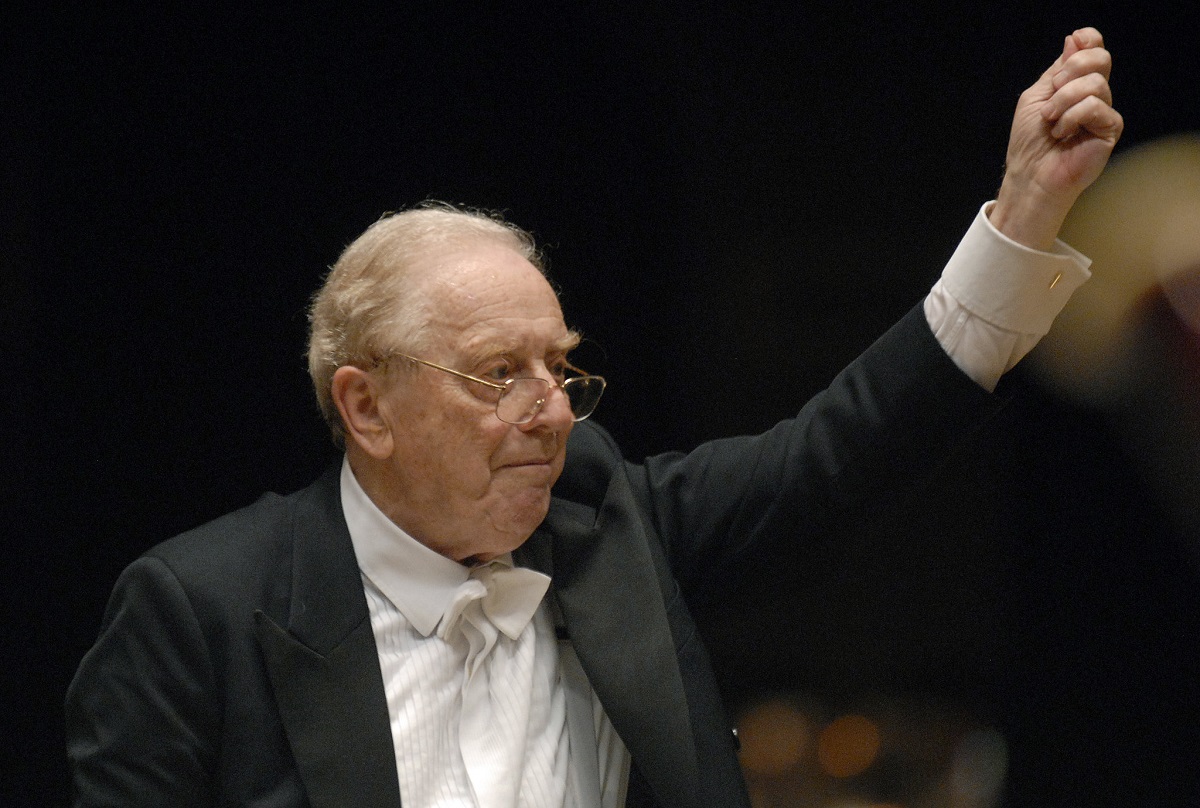
Smetana’s music is of course well-loved in the UK, and I remember one distinguished Czech former music director of a British orchestra, Libor Pešek, explaining to me how he saw the phenomenon of Czech music there. As a long-standing music director of the Liverpool Philharmonic – the first British orchestra to visit the Prague Spring Festival, in 1993 – he had plenty of opportunity to observe that, “though taught to keep their emotions under wraps, the Brits are very emotional and they welcome every opportunity to live these emotions through music. That may be the basis of the success of Dvořák, whose music sometimes has almost too much emotion.”
Audiences in Britain have always enjoyed hearing Czech conductors, including some who settled there – Vilém Tauský, for instance. Rafael Kubelík, one of the giants among 20th-century conductors and founder of the Prague Spring Festival, was music director at Covent Garden for an all too brief period in the late 1950s, falling victim to a proto-Brexit campaign waged by Thomas Beecham. More recently, in addition to Pešek, Britain has welcomed such conductors as Jiří Bělohlávek (Chief Conductor of the BBC Symphony Orchestra) and Jakub Hrůša (Principal Guest Conductor of the Philharmonia) – the latter, like Hanus, a native of Brno.
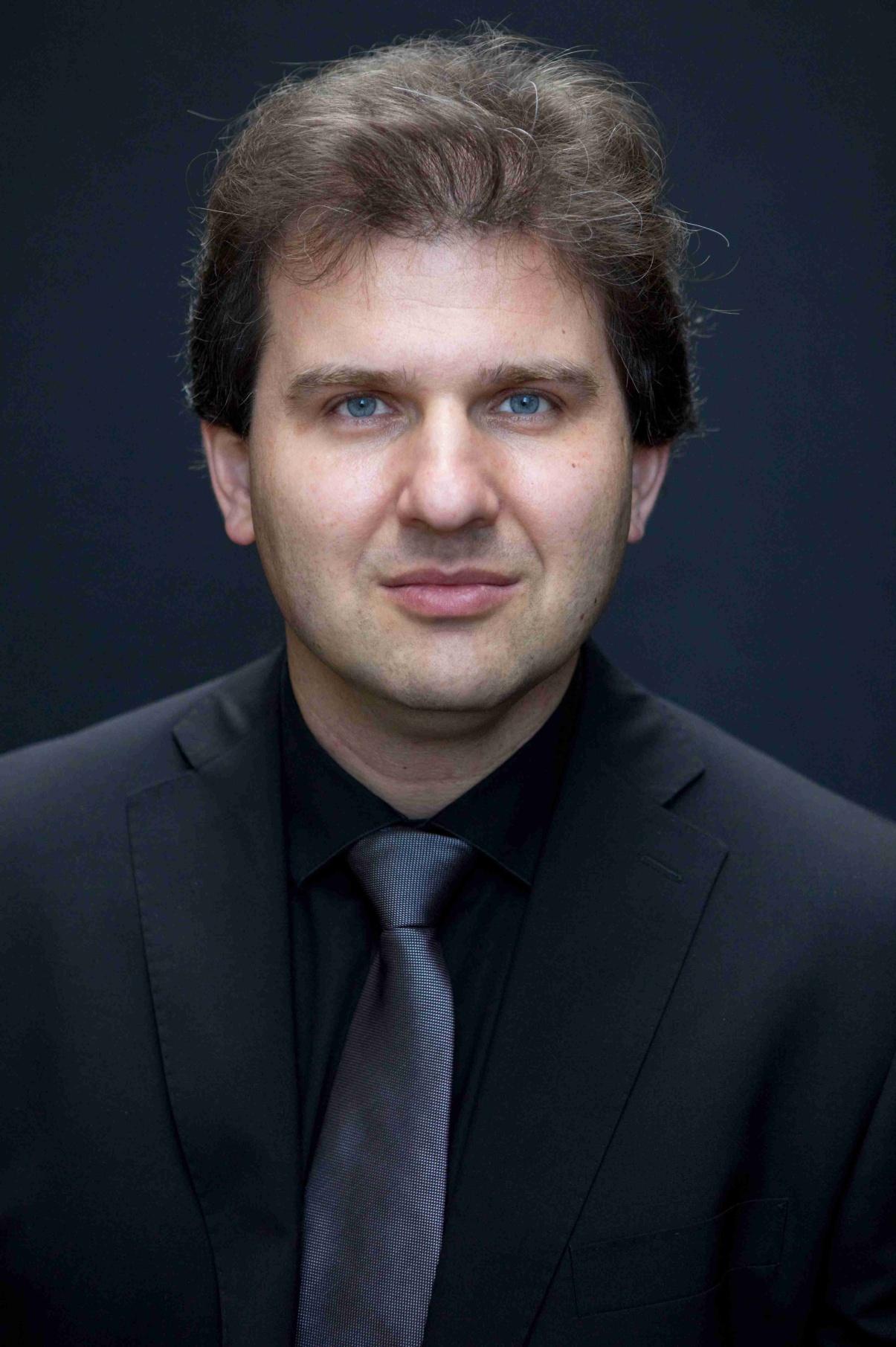
WNO and Hanus have visited the Janáček Festival in Brno with From the House of the Dead (2018) and The Makropulos Case (2022), but to understand what brought Hanus to WNO we fi rst need to consider the role played by the director David Pountney. Appointed as chief executive and artistic director at WNO in 2011, Pountney was looking for a new music director when he heard Hanus conduct The Makropulos Case in Munich. As Hanus recalled in an interview in Opera magazine (June 2020), “We met after a performance and he asked if I would be interested in thinking about this idea. Of course I had to meet the orchestra and so on, but this was the beginning.” Arriving in autumn 2016 to succeed Lothar Koenigs, Hanus made an immediate impression with the orchestra in his opening concerts – his actual operatic debut with the company was in 2017 with Die Fledermaus – and he has now extended his contract in Cardiff (the company also tours Wales and England) until 2026.
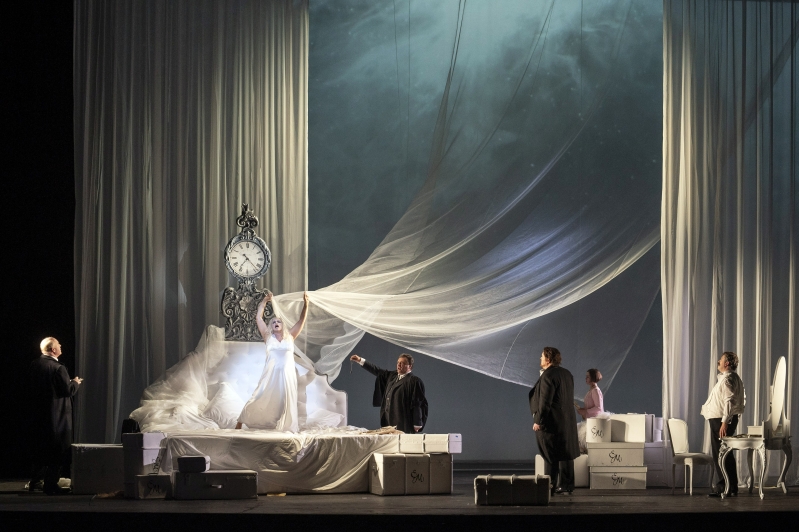
But Pountney, a director before he combined that with administration, had known WNO since the 1970s, when he staged a celebrated Janáček cycle there in collaboration with Scottish Opera. Pountney had actually made his breakthrough in 1972 at the Wexford Festival with Katya Kabanová, and went on to establish his name as an interpreter of Czech opera in particular. One of his most famous productions was the Rusalka that opened in 1983 at English National Opera, where he also directed Osud and The Adventures of Mr Brouček (a piece he revisited at Grange Park Opera as recently as summer 2022). He has also turned his attention to Smetana operas, directing Two Widows at ENO (also earlier at Wexford), and both The Bartered Bride and Dalibor at Scottish Opera. Martinů has caught his attention too, notably with Julietta at Opera North and The Greek Passion at Covent Garden (a production of the “London version” that premiered at Bregenz).
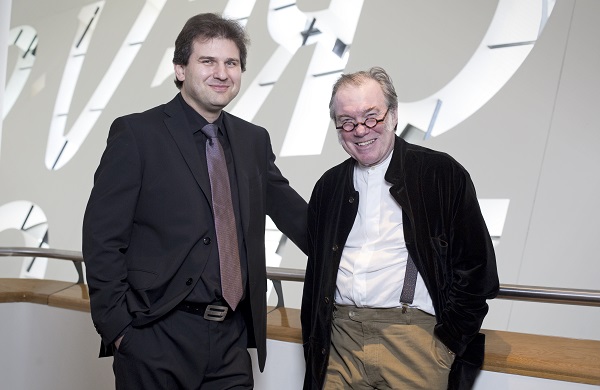
So, while their collaborations were by no means exclusively Czech – “I did not come to Wales to create a Czech island,” Hanus has said, and his wide repertoire at WNO has even included Prokofi ev’s War and Peace – it is clear that the conductor found much common and sympathetic ground with Pountney. WNO has since acquired a new general director in Aidan Lang, but the Pountney-Hanus partnership was recognized at the 2018 UK Theatre Awards, where the “Achievement in Opera” category was won by them jointly for their artistic directorship of the company. And despite a change of management the continuity of Hanus’s Janáček thread at WNO remains unbroken: From the House of the Dead, The Cunning Little Vixen, Jenůfa and The Makropulos Case. That House of the Dead, in October 2017, also counted as a trial run of John Tyrrell’s critical edition of Janáček’s last opera, before it went to Covent Garden the following spring.
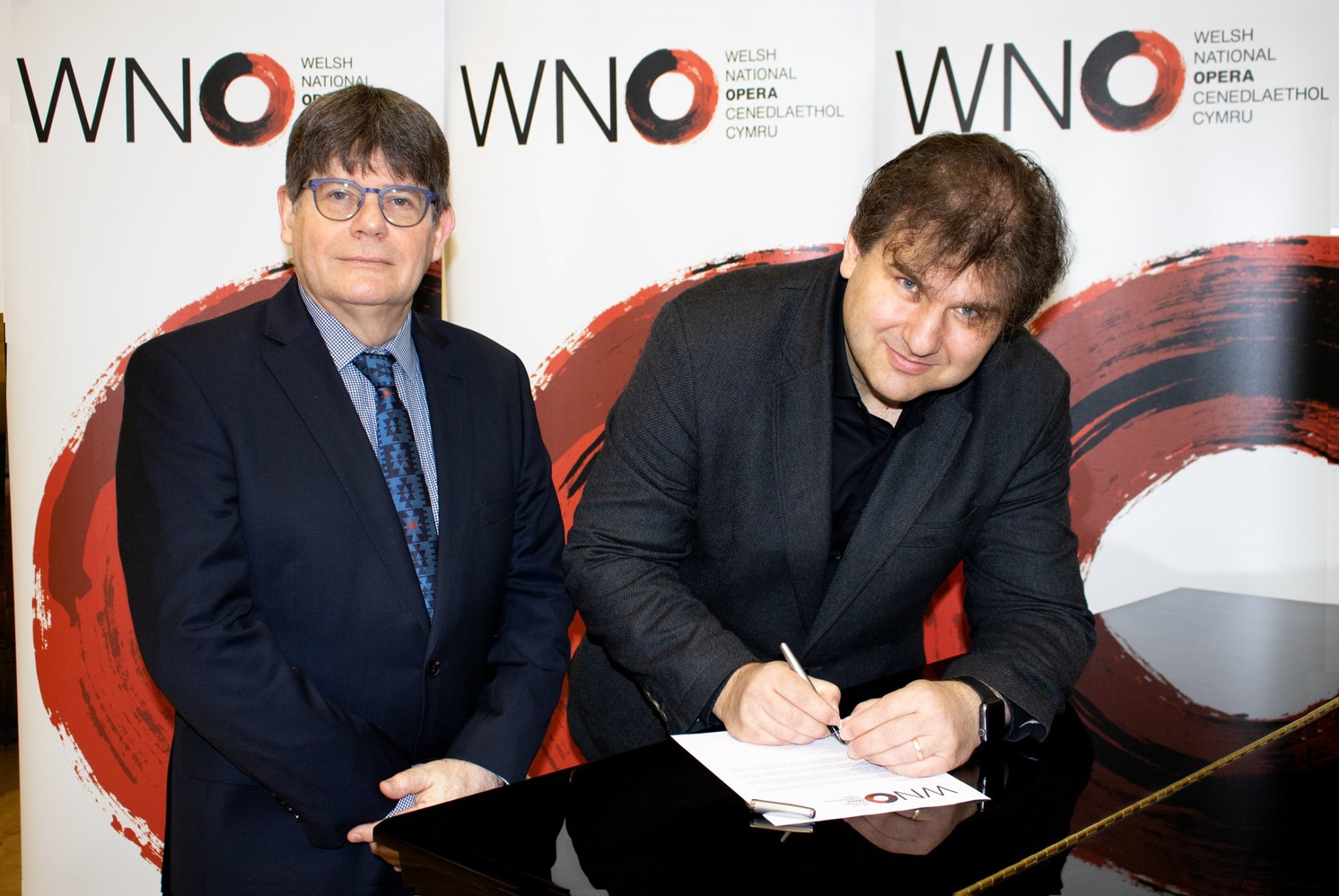
There’s another Czech opera – and an altogether more personal project – that Hanus has done with WNO. Hans Krása’s children’s opera Brundibár, performed as part of WNO’s “Freedom Festival” in 2019, is especially close to Hanus’s heart, since his own mother, Anna Hanusová-Flachová, had been one of those children imprisoned in the Terezín concentration camp where the opera was performed. In a sense, Hanus was fulfi lling the obligation of a lifetime by conducting this modest work and production at WNO. His mother had sung both in the chorus and in the central role of Aninka (the character who, with her brother Pepíček, sings to get money for milk for their ailing mother), and fate determined that she would survive the Holocaust; eight of her grandchildren were present at WNO’s performance and joined in a reprise of the fi nal chorus of triumph and hope.
As Hanus recalled in the Opera magazine interview, “the story of the children in Terezín has been so strong in my life, always there, that I was nervous to present this opera. My mother hardly ever talked about it, she maybe mentioned it sometimes, but she was not really able to share that experience. It was only at the end of her life that she could speak about it and that was because she and some of the other survivors were asked by some international institutions to talk to children at school… It was not just difficult for my mother to talk about this, it was difficult for me as well. I have found this quite a phenomenon for the second generation of those who were in the Holocaust – we still feel the hurt of what happened to our mothers and fathers… When I opened the score again for the first time, I was crying and I didn’t know how I would be able to conduct. I remember I asked our leader, David Adams, if he would carry on if I was crying too hard and I was really in difficulties, but in the end I could do it. Professional feelings and experience allowed me to do that.”
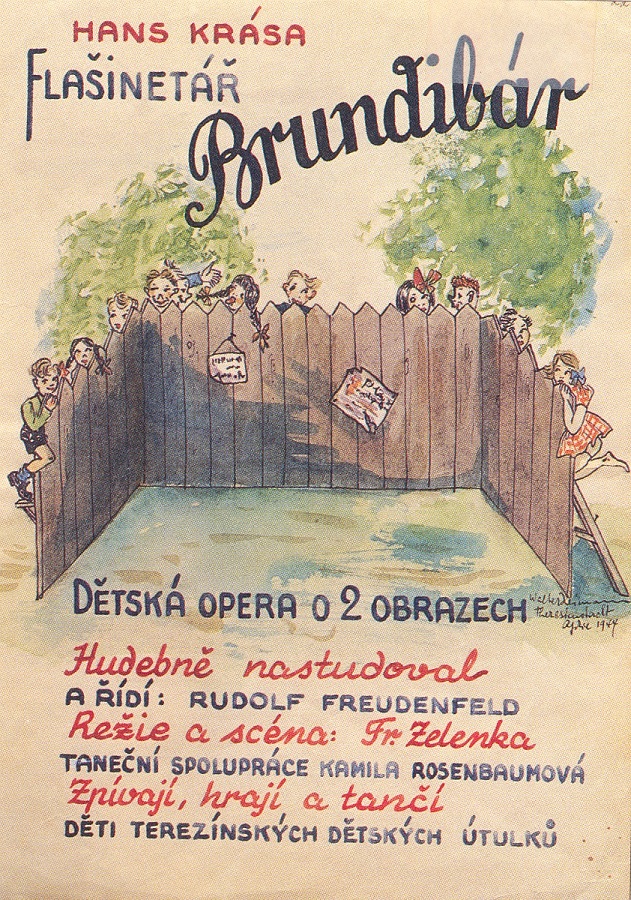
Although Hanus is now in demand in many of the world’s leading opera houses, for both Czech and non- Czech repertoire, he has opened his heart especially to audiences and colleagues at WNO, and in return they have taken him into their hearts. Even the critics have been warm and welcoming. Reviewing his first operatic performance in Cardiff, Die Fledermaus in 2017, Rian Evans wrote in Opera of “the company metaphorically raising their glasses to Tomáš Hanus… the authority and ease of his relationship with the musicians was audible in the overture. Throughout the evening, Hanus’s instinctive control of highly accentuated rhythmic character and give-and-take rubato was artlessly achieved, making the performance a buoyant affair.” He has continued since then to receive high praise across a wide repertoire, though perhaps never more so than when conducting Czech music. Though the Orchestra of WNO is first and foremost an opera orchestra, its reputation in symphonic music makes this Má vlast eagerly awaited. Hanus and the orchestra will surely bring a strong sense of drama to Smetana’s masterpiece – not only in such movements as the third, Šárka, with its especially dramatic tale, one that has been set operatically by Fibich and Janáček, but across a whole work that might almost be described as an opera without words, in six acts.
